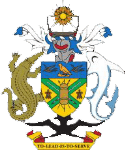According to United Nations statistics, wildlife trafficking is among the five most lucrative illegal trades in the world, worth around USD$23 billion annually.
As poaching and wildlife trafficking are such lucrative trades, they are often complex in nature and have the end effect of eroding biodiversity, ecosystems and create insecurity that creates conflicts and fuels corruption.
The illegal trade, unabated, can also strip countries of their national assets, disrupt social cohesion and, undermine the rule of law.
This being the case, any effort to seriously tackle wildlife trafficking in Solomon Islands will not only require stronger institutions and law enforcement, but will also require a holistic approach to decisively deal with poverty, create economic opportunities and involve local communities in decision making, while at the same time, raising greater public awareness on the issue.
The main international agreement between governments that is aimed at protecting wild animals and plants from this illegal trade threatening their survival is the Convention on International Trade on Endangered Wild Flaura and Fauna or CITES in short.
Solomon Islands became party to the Convention in 2007.
The key legislations for the protection, conservation and management of wildlife in the Solomon Islands are the Wildlife Protection and Management Act 1998 and the Wildlife Protection and Management Regulation 2008.
These legislations regulate the exports and imports of certain animals and plants and comply with the country’s obligations under the CITES agreement.
The national law is looked after by the Environment & Conservation Division (ECD) under the Ministry of Environment, Climate Change, Disaster Management & Meteorology (MECDM) and is supported by other legislation, initiatives and documents such as the Royal Solomon Islands Police Force Environmental Crime Manual 2015.

